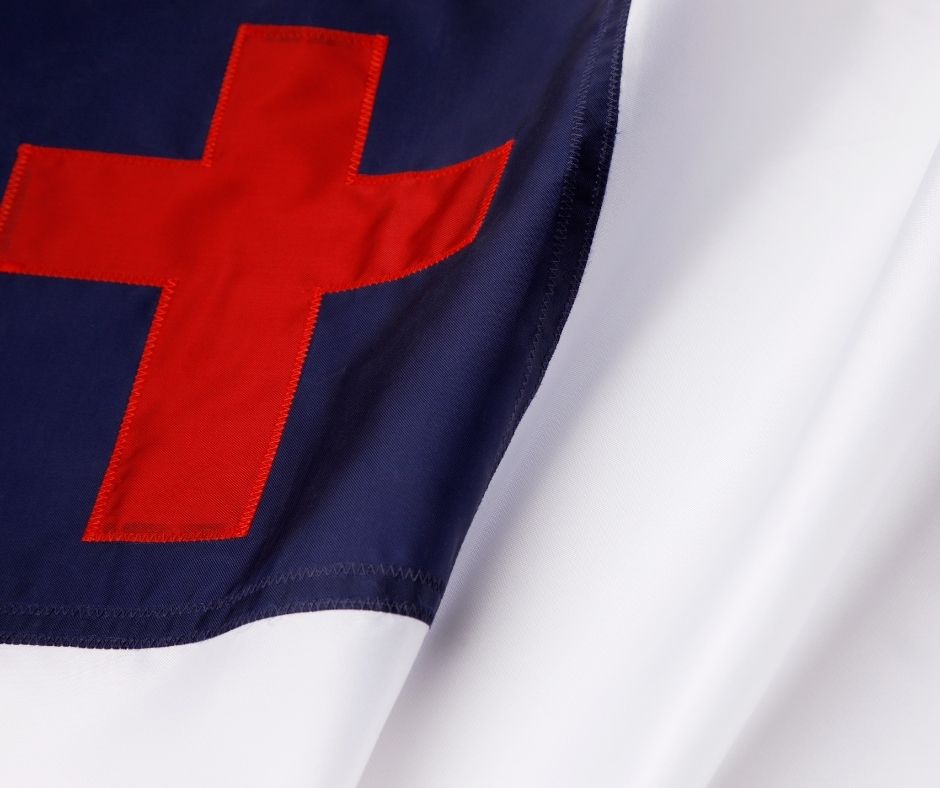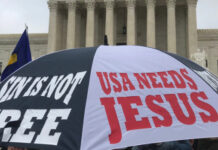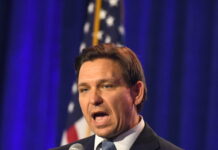In the 13 months since Liberty Counsel’s 9-0 victory at the U.S. Supreme Court in Shurtleff v. City of Boston, where Boston illegally censored Christian viewpoints by denying flying the Christian flag in a public forum open to “all applicants,” the ruling has influenced the decisions of many city governments to not make the same mistake of favoring one group over another.
While Joe Biden called for the nation to “wave their pride flags high” in a recent proclamation, city officials in Connecticut, California, Massachusetts, and other states have opted not to raise “pride flags” on government flag poles. Instead, they are keeping those poles reserved strictly for traditional flags, such as the American flag, state flags, and the POW/MIA flag.
In Wethersfield, Connecticut, the city council voted 5-4 in December 2022 to limit what flags could be flown on government property. Mayor Michael Rell, who had previously supported raising the “rainbow pride flag,” voted this time not to allow it because he believed the ruling in Shurtleff could open the town to lawsuits if they tried to be the “ultimate decision-making body” for who can or cannot fly flags.
“When we allow any one group to fly their flag it sends a message to the public,” said Rell. “It puts us in a position where as a council we would have to sit there and pick one group over the other…It’s not a position the council should be in. The council’s role is to make policy. We should not be making divisive political decisions that could set the town up for a lawsuit.”
In neighboring Massachusetts, city councils across the state have debated whether they could, or should, speak for their communities at large through flag raising. Towns like Dighton, Reading and Williamstown have all voted to do the “safe thing” to allow only traditional flags and not allow flag requests at all to prevent “divisiveness.”
“We decided to stay in our lane and reserve ourselves to town governance issues,” said Andrew Hogeland, who sits on the Williamstown Select Board and serves as president of the Massachusetts Select Board Association. “It’s a matter of how much do you want to be the entity that declares what the values of the municipality are. In our view, we thought our citizens are pretty good at doing that themselves.”
Across the country in Redlands, California. city councilmembers voted 3-2 in May 2023 to uphold the city’s longstanding policy of not flying any non-official flag.
Redlands Mayor Eddie Tejeda stated, “It is my opinion that if we adopt changes to our flag policy, that we do so at our own risk…In this case, it will demonstrate favor of one group over others.”
Other states where municipalities are keeping their flagpoles to traditional flags include Ohio and New York, as well as several school districts in Utah and Wisconsin.
In Shurtleff v. City of Boston, the U.S Supreme Court unanimously declared that the City of Boston violated the Constitution by censoring a private flag in a public forum open to “all applicants” merely because the application referred to it as a “Christian flag.” The High Court stated because the government admitted it censored the Christian flag because it was referred to as a Christian flag on the application, the censorship was viewpoint discrimination, and therefore the government was not taking part in establishing a religion by flying the flag.
The Supreme Court’s decision in Shurtleff focused in part on “government speech” and “ownership of expression.” The ruling stated that when the government opens a forum for expression to the public (such as a flagpole), then the First Amendment prevents viewpoint discrimination.
Some government officials have not learned the lesson from the Shurtleff case, and failure to heed its commands can be very costly, as it was for the City of Boston, which had to pay over $2.1 million in attorney’s fees and costs. For instance, the governor of Wisconsin ordered the “pride flag” flown over the state’s capitol June 1, 2023. In the city of Dallas, Texas, the city council passed a resolution May 31, 2023, to fly the flag at town hall during June and at city-owned properties around the city. In San Francisco, California, police officers raised the “pride flag” at city-owned flagpoles, some of them wearing rainbow-colored hats and patches as part of their uniforms.
These cities are on notice that they could wind up like the City of Boston.
Liberty Counsel’s Founder and Chairman Mat Staver said, “This 9-0 decision from the Supreme Court involving the Christian flag continues to influence many elected officials around the nation. The clear message from the Supreme Court is that government cannot favor one viewpoint and censor another. To avoid litigation and an unfavorable ruling like the City of Boston received, governments should stick with government flags. If they veer away from government flags, be warned that viewpoint censorship can be a costly mistake.”
For more information on Shurtleff v. City of Boston, visit www.LC.org/flag.















